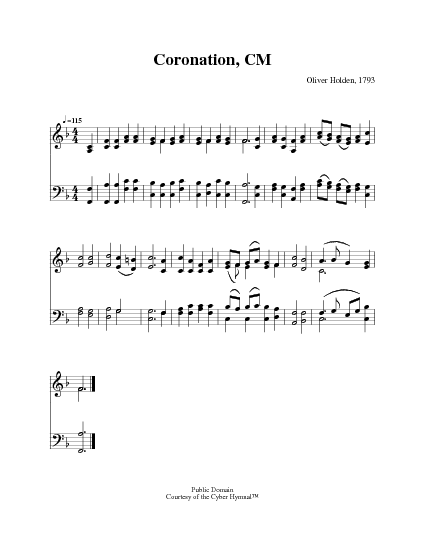Go Ad-Free
If you regularly use Hymnary.org, you might benefit from eliminating ads. Consider buying a Hymnary Pro subscription.
If you regularly use Hymnary.org, you might benefit from eliminating ads. Consider buying a Hymnary Pro subscription.

1. Our God, our God, Thou shinest here,
Thine own this latter day;
To us Thy radiant steps appear,
Here goes Thy glorious way!
To us Thy radiant steps appear,
Here goes Thy glorious way!
2. We shine not only with the light
Thou sheddest down of yore;
On us Thou streamest strong and bright
Thy comings are not o’er.
On us Thou streamest strong and bright
Thy comings are not o’er.
3. The fathers had not all of Thee,
New births are in Thy grace;
All open to our souls shall be
Thy glory’s hiding-place.
All open to our souls shall be
Thy glory’s hiding-place.
4. Thy comest near; Thou standest by;
Our work begins to shine;
Thou dwellest with us mightily—
On come the years divine!
Thou dwellest with us mightily—
On come the years divine!
Source: The Cyber Hymnal #5467
| First Line: | Our [O] God, our God, thou shinest here |
| Author: | Thomas H. Gill |
| Language: | English |
| Copyright: | Public Domain |
Our God, our God, Thou shinest here. T. H. Gill. [Whitsuntide.] Written in 1946, and first published in G. Dawson’s Psalms & Hymns, 1846, No. 119, in stanzas of 4 lines. In 1853 it was given in Hedge & Huntington’s Hymns for the Church of Christ, No. 726, with the omission of stanza vi., and thus came into American common use. It was rewritten by the author for his Golden Chain, &c., 1869, No. 55, in 8 stanzas of 4 lines, is therein entitled “The Glory of the latter days,” and is accompanied with the quotation from Milton:--
“The power of Thy grace is not passed away with the primitive times as fond and faithless men imagine, but Thy kingdom is now at hand, and Thou standing at the door.”
The Baptist Hymnal, 1879, No. 756; Dale’s English Hymn Book, 1874, No. 364; Horder’s Congregational Hymns, 1884, No. 185, and other modern English collections follow the 1869 text. The cento “Come, Holy Ghost, in us arise,” in the American Baptist Service of Song, Boston, 1871, is also from the 1869 text, and is composed of stanzas v.-viii. The author says of the full text, “I approve of both forms, but the earlier has more freshness and freedom.”
--John Julian, Dictionary of Hymnology (1907)


 My Starred Hymns
My Starred Hymns